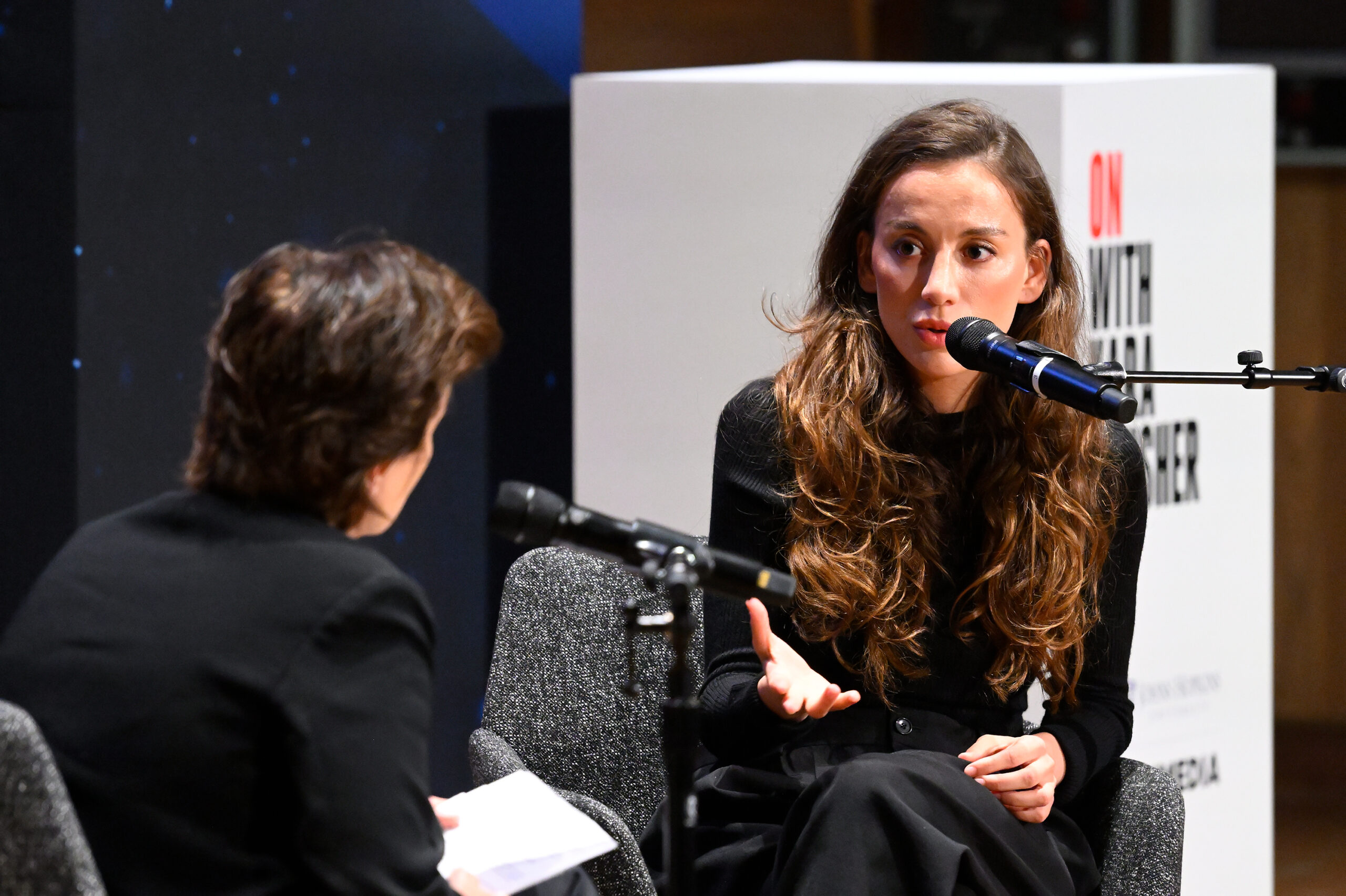OpenAI’s Mira Murati is optimistic about AI. Should she be?
Journalist Kara Swisher questions Murati about the potential dark side of the rapidly evolving tech

- Image Will Kirk
Veteran tech reporter Kara Swisher offered Mira Murati, OpenAI’s chief technology officer, a piece of advice she’s offered to many tech company leaders before during a recent taping of her podcast, On with Kara Swisher, at the Johns Hopkins University Bloomberg Center.
“If you’re in a ‘Black Mirror’ episode, maybe you shouldn’t make it,” Swisher said, invoking Netflix’s show that explores the dark side of technology. Swisher’s comments came after she described a forthcoming OpenAI tool capable of recreating a person’s voice based on a 15-second recording.
Murati resisted on Swisher’s assessment, calling it a “hopeless approach.” She added, “These technologies are amazing, and they have incredible promise. We can get this right.”
The exchange encapsulated much of the conversation, with Swisher questioning Murati about the potential drawbacks of AI technology and the CTO arguing that the benefits far outweigh the risks.
Swisher asked pointed questions about potential copyright infringement when OpenAI uses existing content to train its models, the company’s recent dustup with actress Scarlett Johansson, and whether it’s taking the transformative nature of its technology seriously.
The podcast host summarized the criticism she often hears of OpenAI: That the company prioritizes the “shiny new products” over worrying about the impact of those products.
Murati called that viewpoint cynical and said her entire team is “working extremely hard to develop and deploy the systems in a way that is safe.”
Also see
What to know about AI and the upcoming elections
Adrian Fontes, Arizona’s secretary of state, calls the election role-playing exercise he coordinated to prepare for the coming elections, “Dungeons & Dragons for election administrators.” The program brought together election officials, vendors, law enforcement members, and officials from local, state, and federal agencies to consider scenarios that could affect voting, including an AI-generated deepfake video of Fontes sharing false information.
Fontes was joined by his counterpart in Georgia, Brad Raffensperger, and Johns Hopkins University President Ron Daniels for a panel discussion about AI and the coming election, moderated by veteran tech reporter Kara Swisher. Four key takeaways from their conversation
Q+A: How election experts are thinking about the 2024 elections
Nearly half the world’s population are expected to vote in 2024 as more than 60 countries around the globe hold elections. Looming over those votes is the potential use of artificial intelligence to disrupt campaigns and elections.
Scott Warren, a visiting fellow at the SNF Agora Institute at Johns Hopkins University and a visiting fellow at the German Marshall Fund (GMF), recently attended a convening of global election officials held in Brussels. There, he heard about their efforts to prepare for an AI-fueled election season. Read more on the Hub
Kara Swisher launches AI interview series at Hopkins Bloomberg Center
Journalist Kara Swisher will interview OpenAI’s Mira Murati on Monday, June 10, as the inaugural guest of a four-part live event series hosted at the Johns Hopkins University Bloomberg Center in Washington, D.C.
Each of the four live events in the new Discovery Series will focus on a different AI-related issue and feature Swisher recording an interview with a topic-specific guest for her podcast, On with Kara Swisher, and a panel discussion moderated by Swisher with leading experts from Hopkins and other organizations. Read more
Expert perspective: We need to accelerate and broaden AI research
K.T. Ramesh, a professor in Johns Hopkins University’s Department of Mechanical Engineering, has studied everything from materials design to asteroids over his three decades at the university.
He’s now applying artificial intelligence to those areas of study, as well as the mitigation of traumatic brain injury. Additionally, Ramesh is the interim co-director of the JHU Data Science and AI Institute, which is focused on interdisciplinary artificial intelligence and its applications.
We spoke with Ramesh about the institute, his research, and the state of AI more broadly. Read more
Rolling out AI responsibly comes down to managing risk, Murati added. Pointing to her background as an engineer, she said, “The entire human civilization is built on engineering … our bridges, everything. There’s always a risk that comes …and you manage that risk with responsibility. But it’s not just the developers, it’s a shared responsibility.”
Similarly, when it comes to regulating AI, Murati spoke about the need to find the “right balance” between flexibility that enables and encourages innovation and guardrails that protect the public.
Underscoring each of Murati’s comments was a sense of optimism about the technology.
“This technology’s incredible, and it will allow us to do just amazing, amazing things,” she said. “I’m very excited for this potential in science, discovery, in education, in particular in health care.”